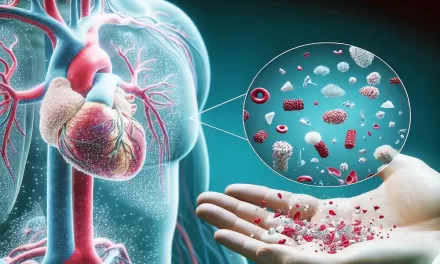University of California, Davis — Fruit smoothies are a popular choice for a quick and nutritious meal, but recent research suggests that the bananas in your smoothie might be affecting your body’s ability to absorb vital nutrients. A study conducted by the University of California, Davis, has revealed intriguing insights into how the combination of certain fruits can impact nutritional intake, particularly the absorption of flavanols.
The study, led by Javier Ottaviani, Director of the Core Laboratory at Mars Edge and an adjunct researcher at UC Davis’ Department of Nutrition, was featured in the Royal Society of Chemistry’s journal Food & Function. Ottaviani’s research delves into the role of polyphenol oxidase (PPO), an enzyme present in many fruits and vegetables, and its effect on flavanol levels.
The Science Behind Your Smoothie
Flavanols are bioactive compounds known for their benefits to heart health and cognitive function. They are found in fruits such as apples, pears, blueberries, and blackberries, as well as in cocoa. PPO is the enzyme responsible for browning in fruits like apples and bananas, which occurs when these fruits are sliced or peeled.
The study aimed to understand how blending fruits with different levels of PPO affects flavanol absorption. Researchers compared smoothies made with high PPO fruits, like bananas, to those made with low PPO fruits, such as berries.
Bananas vs. Berries: The Smoothie Showdown
Participants in the study drank either a banana smoothie or a mixed berries smoothie, with their blood and urine samples analyzed for flavanol levels. The results showed that banana smoothie drinkers had 84% lower flavanol levels compared to those who consumed the berry smoothie.
“It was surprising to see how adding just one banana could dramatically decrease the flavanol level in the smoothie and, in turn, the flavanol absorbed by the body,” said Ottaviani.
This finding highlights the impact of food combinations and preparation methods on nutrient absorption. While bananas are a healthy fruit, their high PPO content may interfere with the absorption of flavanols from other fruits.
Smoothie Hacks for Optimal Health
Don’t worry, bananas are still a nutritious choice! However, if you’re aiming to maximize flavanol intake, consider blending fruits rich in flavanols, like berries, with other low PPO ingredients. Pineapple, oranges, mango, or yogurt can be good alternatives.
For those who enjoy adding bananas or other high PPO fruits to their smoothies, it might be wise to avoid mixing them with flavanol-rich options. This approach can help preserve the health benefits of both the fruits and the nutrients they contain.
The Significance of the Study
Ottaviani’s research opens up new avenues for exploring how food preparation affects flavanol absorption. The findings suggest that not only the types of fruits and vegetables we choose matter, but also how they are prepared and combined.
“The study gives us a roadmap for future research into how we prepare other foods and how it affects flavanol absorption,” Ottaviani noted. The implications extend beyond smoothies, potentially affecting how we prepare and consume other flavanol-rich foods like tea.
As interest in dietary flavanols and polyphenols grows, this research underscores the importance of considering both the selection and preparation of fruits and vegetables to maximize their health benefits.
The study involved collaboration between UC Davis’ Department of Nutrition, Department of Internal Medicine, University of Reading, King Saud University, and Mars, Inc.











